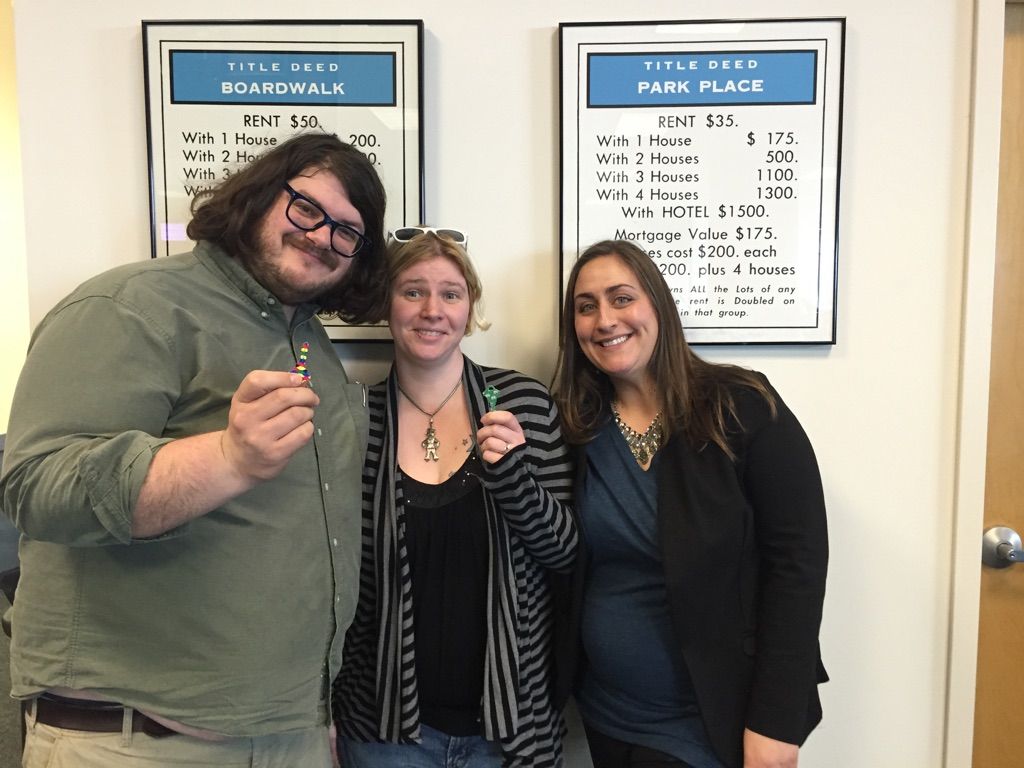All You Need To Know About the Closing Process
You’re getting closer to your expected closing date! Congratulations! But let’s face it - it’s a stressful process and you won’t relax until the keys are in your hand. Don’t panic - here’s what’s likely to happen in the days leading up to closing - and what happens during the closing itself.
Typically, there aren’t any lender surprises this late in the game - usually the mortgage commitment is due a few weeks ahead of the closing in order to proceed with the sale, meaning you’re free and clear of the worry of your financing falling through. However, if your mortgage commitment was issued with a list of contingencies to take care of before close, or in some cases a few business days before close, iron those out as soon as possible. In our case, we were asked to send a few last-minute documents or explanations of finances - I even had to write a letter stating the outdated address on my license wasn’t a piece of real estate I owned that I hadn’t disclosed. Taking care of those the first day I was able to removed a lot of stress from my plate.
As your closing date moves closer, you’ll continue hearing from your mortgage broker or lender point of contact. New regulations, known as TRID, were enacted in 2015 - and those mean that you’ll get your final closing disclosure at least 3 days before closing, instead of 24 hours in advance. If you'd like to see a sample of this document, click here. This means less last-minute scrambling or unexpected surprises to iron out. However, it’s possible that the final amount of cash to close listed could still be off slightly from this disclosure. Our lender’s lawyer called us the day before close to let us know the exact amount, and we were able to go to the bank to get a cashier’s check. While sometimes a personal check is okay at closing, in our case because we needed additional down payment funds, we were asked to directly wire or have a bank/cashier’s check ready. It’s best to ask your buyer’s agent and your lender or lender’s attorney to find out what they require. We also brought our checkbooks in case of any last minute fees that were lost in translation - thankfully, it went unused!
Don’t overlook small steps to take a few days before closing - like switching the utilities into your name as of the closing date, and making sure that if your closing date has moved, your home insurance is also updated to reflect the change. We were also asked if we wanted to include title insurance in our closing costs. We chose to purchase title insurance to protect ourselves from any surprises down the road. While this is an optional purchase, going without it means taking on extra risk. For instance, the lender will have its own title insurance to protect its investment into your home - but that will merely pay off your remaining mortgage. If a flaw in the title or undisclosed heirs show up down the line and you don’t have any title insurance for yourself, you would lose the equity in your home. While these instances are thankfully rare, they do happen - and since title insurance is a one-time purchase valid for the life of the home, in our case it was needed peace of mind.
The final step before the closing is the walk through. This is to make sure that the owners have vacated, have left all appliances or other items written into the purchase and sales, and that anything that was agreed upon to be fixed has been completed. It’s important to make sure that everything is exactly how it’s supposed to be - and if it’s not, now is the time to get it right, even if it means delaying closing if it’s absolutely necessary. Although traditionally 24 hours before closing, we did ours an hour before the close! We had been through the house to measure the week before and it was unoccupied previous to the buying process, so we didn’t expect anything out of the ordinary - and it was merely to make sure we hadn’t missed anything.
Finally, it’s closing day. While sometimes they’ll take place in your lender’s attorney’s office, ours - and many others- took place at the Essex County Registry of Deeds in Salem. The Registry is huge - and you’ll be mixed in with a lot of other folks making transactions, and many curious people who have come to research their own deeds, or historical deeds. The Registry runs like a well-oiled machine, and either your buyer’s agent or the seller’s agent will have reserved one of the closing rooms for your transaction.
Don’t be surprised if there’s a lot of people that come to your closing! You’ll have the sellers, their agent, their lawyer, your lender’s attorney, your own attorney if you have chosen to be represented (we skipped this step), your agent, and in our case, even our mortgage broker came (we’re related). We could barely fit everyone at the table! While I expected a very professional and hands-off event, the room was actually pretty fun and we all made the best of it - the sellers were excited and so were we.
You’ll get down to business fairly quickly - signing a lot of documents pertaining to the mortgage, as well as disclosures about the property. Documents will circulate from you to the sellers and back - it’s important to look them over and ask questions if you aren’t sure about what you’re signing, or something isn’t what you expected. You will get another breakdown of your mortgage payments that you’ve likely already seen - as well as an amortization schedule showing the percentage of each payment that goes to interest vs principal. You’ll also receive information on where to send the payments and your loan program information and its parameters. One of the tips we were told was to keep our signatures as similar as possible from page to page - which is hard after you’ve signed what seems like a mountain of paperwork, but keeps documents from being rejected by the lender - no one wants to re-sign documents weeks down the road!
All in all, the actual closing and signing took us a little less than two hours. This, of course, may vary depending on your situation, but be prepared - you’ll be in there awhile. Of course, our buyer’s agent, Heather Numerosi, was incredibly patient and helpful during not only the closing process, but the entire transaction - and brought us water and snacks!
While the closing is a professional transaction, don’t be surprised if the sellers are eager to tell you things about the property or neighborhood. Most sellers are excited the property is going to someone who will truly enjoy it. In our case, we learned a lot about why and when certain construction projects happened - and how to care for the landscaping.
After your closing process, you’ll get the keys to your new home - and you’re a proud homeowner! And now comes the fun part - the moving process. Whether you’re moving right in after you get the keys or taking your time and renovating or redecorating, you’ll need to take some steps to ensure a smooth transition between your old place and your new one. For instance, here’s a handy list:
1. Change the locks as soon as you can. If you’re handy, you can do this yourself - or hire a locksmith.
2. Contact the USPS to move your mailing address and voter registration as soon as you’re able to get mail to your new location - sometimes it can take a few days to start forwarding your mail. You can do this online for $1, and it comes with some pretty sweet coupons for Lowe’s and other home stores.
3. Change your address with the Mass Registry. You can do this online now as well, which avoids standing in line at the RMV. You’ll also need to change your address with your auto insurance carrier afterwards. If you’ve moved zip codes, your insurance could go up - or down - as a result. Let’s hope it goes down!
4. Hire movers - if you need to! We moved ourselves without hiring help. Make sure your movers have insurance and have good reviews on websites like Yelp or Angie’s List. Get a few quotes before committing to any particular company.
There's plenty more to think about - if you're going to do some upgrading, figuring out what should come first, and budgeting, is a must.
But most of all - don't forget to relax, take a deep breath - and enjoy owning your own home!
.png)
.png)
.png)
.png)


